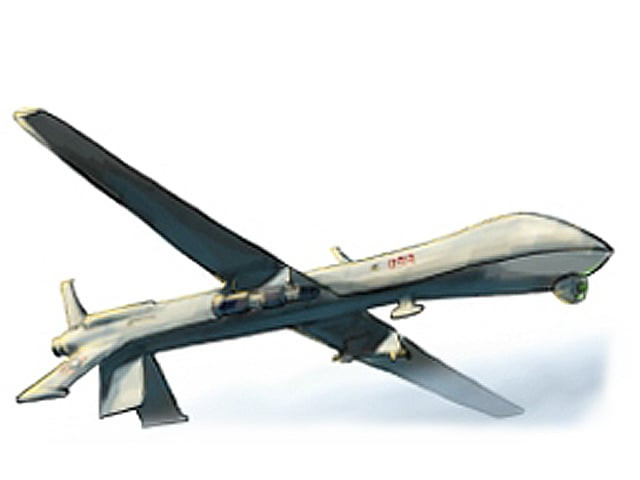The mystery of the drone attacks
Pakistan has benefited from the attacks in the sense that some of its dangerous enemies have been killed by drones.

The strike ended a 55-day-long pause after the Salala checkpost attack by American gunships in November 2011. Following this, a foreign news agency quoted Pakistani officials who said that the drones are being operated under an agreed US-Pakistan plan which remains classified. This clearly contradicts the government’s public stance on this issue, which, quite stridently believes that drones violate Pakistan’s sovereignty and territorial integrity. The American stance in the past has been that drone attacks had to be carried out without bringing Pakistan into the loop because the Pakistani side tended to ‘pass on’ the information about the attack to the terrorists who then moved away from the target area. This was understood all over the world in the light of the belief that Pakistan was actually a allowing safe haven to foreigner terrorists in North Waziristan whom it used for attacking inside Afghanistan to retain its stake in the Afghan endgame. The new ‘information’ — including quotes from unnamed Pakistani officials — belies much of that. It purports to verify that the Pakistani side was indeed keeping the strikes secret and, instead of passing on the information to the terrorists, was actually helping the CIA target them with spotters on the ground. Given the nature of these revelations, it remains to be seen what the Pakistani military’s response will be to them.
One should understand that the drone attacks have been a success story as far as the US and its allies are concerned. The ‘analysis’ about the ‘wiping out’ of al Qaeda and the sharp diminution in its ability to target America and Europe is based on the number of al Qaeda terrorists killed by the drones inside Pakistan. As if to confirm this, a meeting took place between an al Qaeda leader and Mullah Umar in the presence of other commanders in which the al Qaeda representative was quoted as appealing for help for more attacks by allies in Pakistan. Pakistan’s wrath against the CIA after the Raymond Davis case in Lahore early 2011 had brought the US-Pakistan quarrel to a boiling point. Since then, and since the May 2 attack that killed Osama bin Laden, the relationship has been hurtling downhill, ending in Pakistan’s decision not to attend the Bonn conference on Afghanistan. This would then lead to many arguing that with this all as a backdrop, how could Pakistan possibly be cooperating with the US on the drone attacks.
Yet there is logic to the opposite point of view. Pakistan has benefited from the attacks in the sense that some of its most dangerous enemies have been killed by the drones. Baitullah Mehsud, the Taliban chief, whose intercepted telephone call revealed that he was behind the assassination of Benazir Bhutto, was killed by a drone. Ilyas Kashmiri was killed in a drone strike and Hakimullah Mehsud, who succeeded Baitullah, was killed ‘twice’ in drone strikes. The first one was false but the second more recent one is yet to be proven false. Clearly, drone strikes are effective. However, Pakistan’s policy of saying one thing in public and quite the opposite in private should be replaced by when where the people should be persuaded of this strategy’s effectiveness.
Published in The Express Tribune, January 25th, 2012.














COMMENTS
Comments are moderated and generally will be posted if they are on-topic and not abusive.
For more information, please see our Comments FAQ